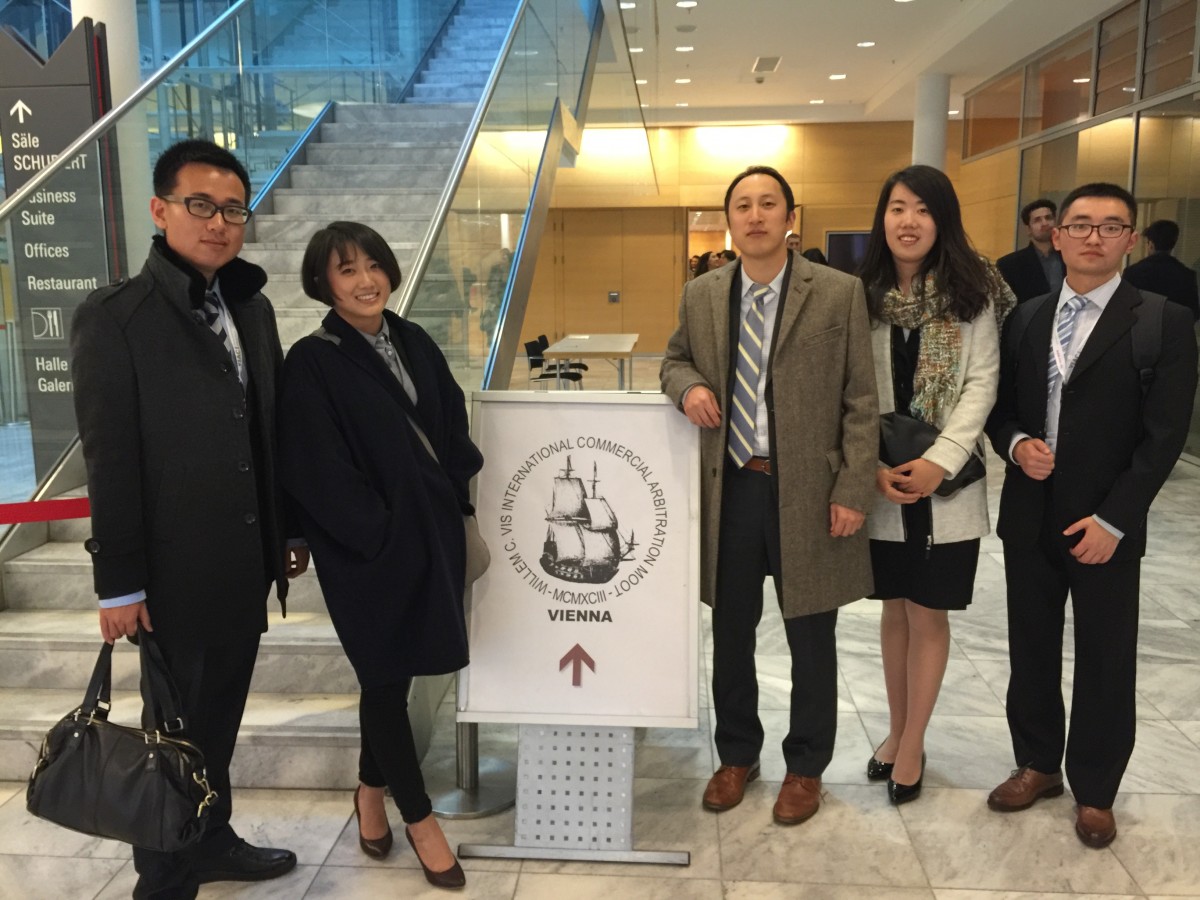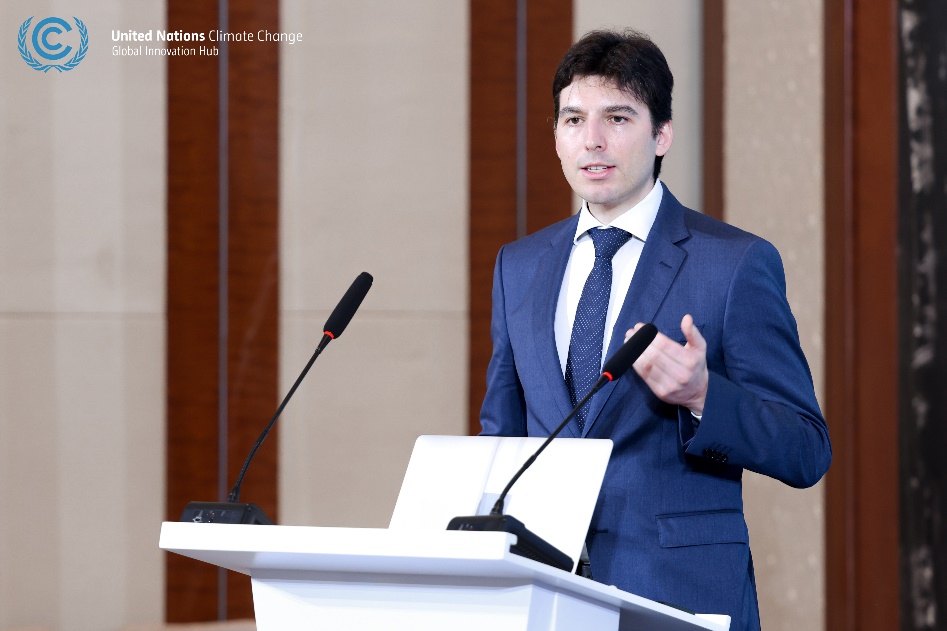Copyright © 2024 Peking University School of Transnational Law.

2016-03-26 Views: 179
Capping six months of outstanding effort and hard work, STL’s Vis International Commercial Arbitration Moot Court team added to their achievements this year by reaching the Round of 64 at the 23rd annual competition in Vienna from March 18-24. The team is composed of 4 students – Ji Yang ’18, Jiang Xinxin ’18, Wang Yushi ’17, and Zhang Dongtian ’17.
This year’s Vis Moot was contested by a record 311 teams hailing from law schools all around the world. In total, 67 countries were represented. In the preliminary round, STL’s team competed against Kuwait International Law School, University Paris Est Creteil, and two schools out of the United States, American University and George Mason University. They delivered four oral arguments, twice each on behalf of the moot problem’s claimant and respondent, in four days. Wang and Zhang co-counseled their representation of the moot problem’s respondent while Jiang and Ji mirrored them on the side of the claimant.
A quartet of equally strong performances from the students earned the team a ticket to the Round of 64, where they joined all the other teams whose preliminary round scores placed them within the top 20 percent. The STL team was the only team out of 11 from mainland China to advance. In the Round of 64, the team opposed Monash University, a former champion of the moot, before falling just short.
The team’s superb result in Vienna followed their successful showing in last December’s CIETAC Cup, a lead-up, China-only competition to the international moot. There, the team ranked third out of 39 teams, reached the semi-finals and took home individual distinctions for Wang and Zhang as the highest-scoring oralist and fifth-highest-scoring oralist respectively out of all students.
Zhang commented, “I think the most valuable lesson I learned from Vis is the method of persuasion. Although the legal issues and our arguments could be complicated at times, we worked to keep simplifying our memos and oral arguments, until the readers and listeners could easily grasp our ideas, and be persuaded.”
Wang reflected, “It was more than amazing to be able to argue in the Vis moot, to communicate with intelligent students from all over the world, to be challenged by so many insightful questions brought up by the sophisticated arbitrators, and to really push myself to a higher level.”
Ji pointed to the team’s “unique chemistry” as a key factor in their attaining the result they were “dreaming for” and noted how he and his teammates worked together “to push each other and to polish our arguments.” Finally, Jiang acknowledged the contributions of “all those who helped us along our journey,” without which “we would not have received the high quality of legal education, great opportunity to participate in the Vis Moot, and thorough preparation that was necessary to make the Round of 64.”
The Vis Moot is hosted by the University of Vienna and co-sponsored by UNCITRAL and 17 arbitral institutions around the world. The competition focuses on the United Nations Convention on Contracts for the International Sale of Goods, and simulates a hearing before panels of three arbitrators. The competition is held entirely in English.
By Eric Mao, Assistant Dean of Academic Affairs


October 14, 2024
October 14, 2024
October 14, 2024
October 14, 2024
October 14, 2024